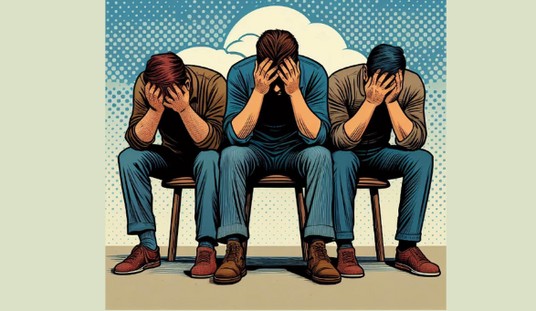Europe’s demographic capitulation is recognized by a growing number of authors. Europe is heading for collapse, it is being said, because we are having too few babies.
But what about those who are having too many babies?
I first stumbled upon this issue in the mid-nineties when I was covering the First Chechen War. A Russian friend and social scientist called my attention to demographics. It turned out that the Chechens had the highest birth rate among the peoples of the Russian Federation.
”If you have seven children, it’s easier to send one or two of them to fight a war. If you have just one kid you will do whatever you can to prevent your only child from joining the army,” my friend explained.
He also made the point that around this time Rwanda had the highest birth rate in Africa, and it may have served as a catalyst for the genocide in 1994. And according to the eminent historian Richard Pipes, overpopulation was an important factor in the explosion of violence following the downfall of the old regime in Russia in 1917. In the beginning of the 20th century Russia had the fastest growing population in Europe.
The German demographer Gunnar Heinsohn has studied demographic trends across countries and history. The results of his research were published in a book back in 2003, Sons and World Domination: Terror in the Rise and Fall of Nations (pdf). The German philosopher Peter Sloterdijk characterized it as the most groundbreaking work in social science since Karl Marx published Das Kapital in 1867. The Danish internet-magazine Sappho has interviewed Heinsohn, and it makes for interesting reading, especially in the context of what is going on in Gaza and in the West Bank, and on a more general level in the Middle East and the Third World.
According to Heinsohn, 80% of world history is about nations with a surplus of sons creating trouble. This may take different forms – higher crime rates, coups d’etat, riots and civil wars, genocide, conquest of new territory.
All this is the result of people having a lot of children. Heinsohn characterizes this phenomena as ”youth bulge”, i.e., when a population is made up of 30% or more males between the ages of 15 and 29. On the other hand Heinsohn defines ”demographic capitulation” as a situation when there are 100 males aged 40-44 for every 80 boys aged 0-4. In Germany the numbers are 100/50, an example of demographic capitulation, and in the Gaza strip it’s exactly the opposite, 100/464, a ”demographic armament”.
Usually, we focus on population growth in India and China, but according to Heinsohn they can’t compete with the Muslim world. Here are some figures:
Over the course of five generations (1900-2000) the population in the Muslim world has grown from 150 million to 1.2 billion (800% growth), China has grown from 400 million to 1.2 billion (300%), and India has increased its population from 250 million to 1 billion (400%). But there are profound differences within the Muslim world, and this is bad news for the prospect of US operations in foreign lands. Apart from Gaza, demographic armament is taking place in Afghanistan (100/403), Iraq (100/351), and Somalia (100/364), but a number of Muslim countries have fallen under the demographic replacement limit. Among them are Iran, Turkey, Algeria, Lebanon, Tunisia, and the Emirates. In fact, Iran now has the same fertility rate as Denmark, 1.7 children per couple.
In reference to the youth bulge in Gaza, Heinsohn is asked if the peace process between Israel and the Palestinians is realistic:
“No, and the main reason is the big mistake that was made in Oslo in 1991, when the secret negotiations between Arafat and Yitzhak Rabin started. The error was that nobody took any notice of the Palestinian population explosion. The Palestinian population has multiplied almost 6 times within the last 50 years. We should have done two things: Israel should have stopped its settlements, and the world community should have said to the Palestinians: Every child in Palestine will be fed by the world community as before, because by accepting that every Palestinian child is a refugee, the world community has a responsibility for the number of children born. But from January 1st 1992 you will have to pay for your newborn children, just as a woman does in Lebanon, in Tunisia and in Algeria. That is what they should have told the Palestinians. Why am I mentioning these three countries? Because in those societies a women has fewer than two children on the average. Had we done that 15 years ago, we would have seen a generation of young Palestinian men with few reasons to commit violence against each other or against the Jews. But we did not, and therefore I do not believe in the peace process, even if Hamas should decide to sign everything. Their young men will tear such agreements to pieces.”
Heinsohn points out that it is the USA and the EU, and particularly the Scandinavian countries, that pay for the enormous Palestinian child production. We must cease this support, so that the Palestinians pay for the children they bring into the world after a certain point in time.
– Why can’t the Palestinians just work like everybody else and earn their own keep?
“Palestine is a special case. They never had any chance of developing because they have always been on international support.”
– From your book one gets the impression that youth bulges create poverty, whereas we in the West have regarded youth bulges as a result of poverty?
“If a youth bulge changes a state into a failed state, then one will see a breakdown of the market and of production, and this will lead to poverty. If we look at current examples of countries with increasing violence — Pakistan and Bangladesh — we can see that both have managed a steady increase in the average income per capita — and even a significant growth. Thus we have created the primary conditions for making the young men both well fed and well educated, which leads to them becoming unruly. If these young men successfully destroy the country’s infrastructure, it will result in poverty. I have followed this process closely in the West African state of The Ivory Coast. Here they have had a system of seven children for every woman, at the same time as the average income has increased. When the killings started, the average income fell.”
Here is what Heinsohn has to say about the future of Europe:
– How do you see the political situation in Europe in twenty years? No welfare state, no democracy?
“Concerning the European continent apart from Scandinavia, Ireland and England, I believe that even the pessimistic population prognoses will turn out to be too optimistic. They assume that the young people will stay in Europe and bring up their own children, but that will not happen. A study from 2005 showed that 52% of the Germans between 18 and 32 wanted to leave. They might not mean it but they are entertaining the thought. The really qualified are leaving. The only ones truly loyal towards France and Germany are those who are living off the welfare system. Because there is no other place in the world that offers to pay for them. America, Canada and Australia count on receiving our best qualified youths, and they will get many of them. That will put an end to innovation and put a damper on economic growth in Europe. In Germany we are already forfeiting billions upon billions in revenue because we lack qualified people to take on the jobs. We have two million jobs that we cannot fill – and a welfare-dependent population of six million, and the two do not meet. The welfare group grows each year because of new babies, but the vacant job slots are not filled.”
“It is a case of two nations that are closed off to each other. The welfare state cannot continue. We cannot hope to cover the demographic holes through immigration from China either, since the Chinese do not want to emigrate into a welfare system where they will have to pay for an ageing population’s pensions in addition to a welfare population of millions.”
“We have to say that there is only one category of people who can count on help from the government, and that is the mentally or physically handicapped. Nobody else should expect help. This sounds cold and cynical but our welfare states were founded in the 19th century when families had 10 children. When their father fell to his death from a scaffold, somebody had to look after the family. This is not the situation we are facing today.”
“If you go to Australia, you will not be paid to have children. You may get a slight tax relief. On the other hand a citizen of Australia can keep 80 out of every 100 dollars he earns.”
– How could it go so wrong in Europe that had this grandiose vision of peace, cooperation and progress and unlimited trust in its own abilities?
“It started to go wrong around 1980. But the great turn in Germany came as late as 1990. That was when we opened the gates for a mass immigration of roughly speaking unqualified people. Between 1990 and 2002 Germany allowed an immigration of 13 million. At almost the same time it started to go wrong in France. We can only avert this burden on the welfare state through legislation. We have to pass a bill to the effect that new children born after a certain date will have to be paid for by their parents. It will be a revolution. But it is not even being discussed here in Europe.”








Join the conversation as a VIP Member